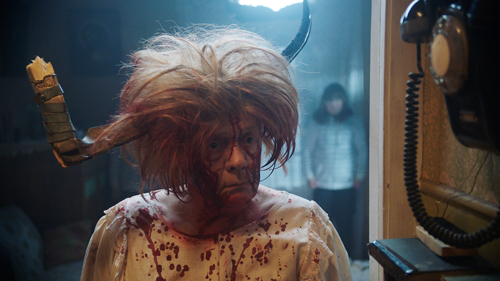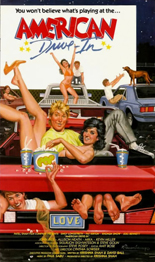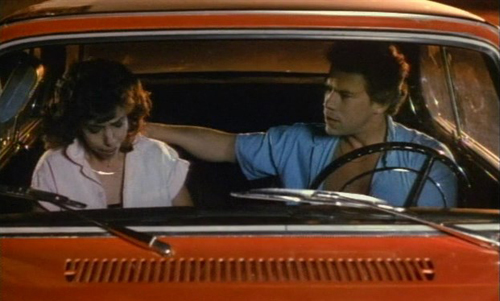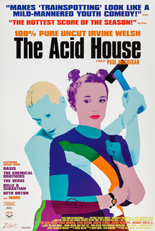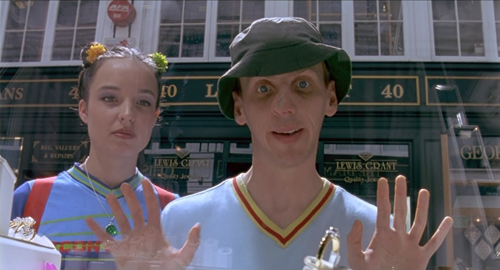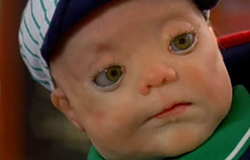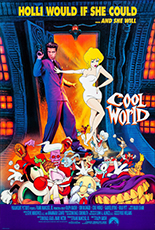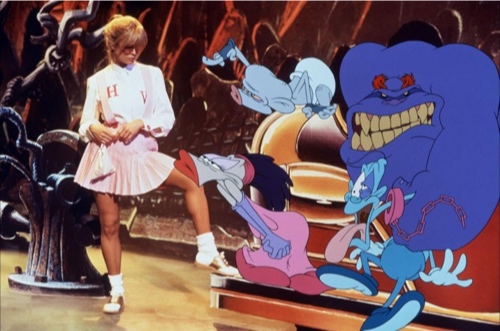
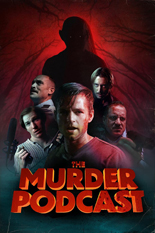 Pot humor may help The Murder Podcast eventually find a cult, but — as is the case 9 times out of 10 (or 378 out of 420) — the movie doesn’t need the boost of bud. It’s funny enough on its own.
Pot humor may help The Murder Podcast eventually find a cult, but — as is the case 9 times out of 10 (or 378 out of 420) — the movie doesn’t need the boost of bud. It’s funny enough on its own.
The lead performance of unknown actor Andrew McDermott is up to 90% of the reason. Sporting a Michael J. Fox babyface that goes a long way for likability, he’s laugh-out-loud hilarious; scene after scene, line reading after line reading, his Chad is reminiscent of peak Steve Zahn. His Funyuns-and-Fright Night approach consistently cracked me up.
Living in his sister’s basement, Chad is a slacker with a poor work ethic and a poorer gag reflex. Rather than get a real job, he and his nerdy best friend (Cooper Bucha, Judas and the Black Messiah) harbor delusions of their ramen review podcast breaking big.
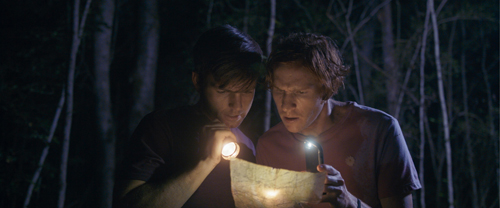
But when their suburban town of Harbor Falls starts seeing strange deaths after a homicide-free run of 20 years, Chad smells money in not noodles, but the caboodle of corpses — hence, The Murder Podcast. Their amateur investigation puts them afoul of cops, a TV news reporter, Chad’s brother-in-law and Sam Raimi-level spookies.
Although it’s similar in tone to Tucker & Dale vs. Evil, I don’t mean to suggest writer/director William Bagley’s first feature is quite as winning; the third act’s heavy shift to the supernatural tips the scales away from what the film does best. But it’s close enough to run circles around so many indie horror-comedy wannabes, from John Dies at the End to Jack Brooks: Monster Slayer. Bagley’s premise is not just supported by strong effects and delivery, but timely in our nation’s collective true-crime obsession. That his lively movie is saddled with such a generic moniker is near-felonious. —Rod Lott

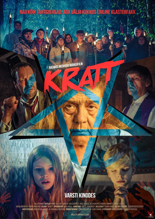 Not to be confused with the processed cheese product manufacturer Kraft — or, for that matter, the sea monster
Not to be confused with the processed cheese product manufacturer Kraft — or, for that matter, the sea monster 